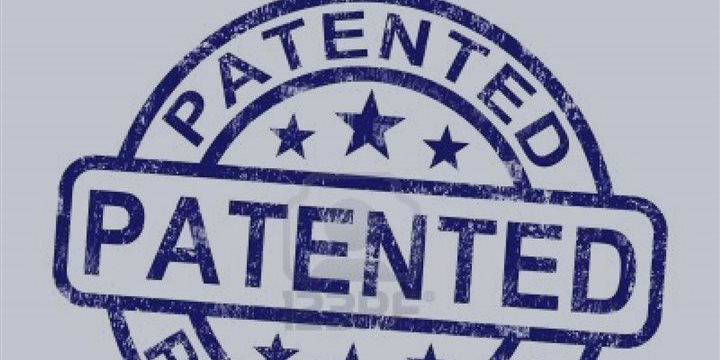
Patents:Apple, L’Oreal, Valero, Translator: Intellectual Property
Apple Inc. (AAPL), maker of the iPhone and the iPad, received a patent on a technology that would let smartphone users locate their vehicles and start them from the outside.
Patent 8,868,254, which was issued yesterday, covers what Cupertino, California-based Apple called “accessory control with geo-fencing.”
The invention depends on a signal from the vehicle to the mobile device. Once the device receives the signal, it can assess whether one or more “location-based criteria” have been satisfied.
Once this is accomplished, the mobile device can send signals to the vehicle controlling various functions, including door locks, window defrosting, trunk or hood release, seat warmers and ignition.
Apple applied for the patent in June 2012, with the assistance of Atlanta’s Kilpatrick Townsend & Stockton LLP, according to the database of the U.S. Patent and Trademark Office.
For more patent news, click here.
Trademark
L’Oreal Persuades Court in India to Halt Sale of Fake Products
L’Oreal SA (OR), the French cosmetics maker, won a court order in India barring an online retailer from using the company’s marks to sell counterfeit products, India’s Business Standard reported.
Paris-based L’Oreal told the Delhi High Court it had seen its name used on Brandworld’s www.shopclues.com website and after ordering products found them to be fakes, according to the newspaper.
The French company, which has used the L’Oreal mark since 1910, argued that its reputation would be damaged by the website’s sale of counterfeits, according to the Business Standard.
The court order is temporary, and further proceedings are set for Dec. 15, the newspaper reported.
OSU Sues New Mexico School for Infringing ‘Pistol Pete’ Mark
Oklahoma State University has sued New Mexico State University for mascot-trademark infringement.
The suit, filed Oct. 20 in federal court in Oklahoma City, alleged that a mascot used by the New Mexico school infringed trademarks associated with the Oklahoma school’s “Pistol Pete” trademark.
According to court papers, OSU has used Pistol Pete since 1930. The school said it has registered the mark with the U.S. Patent and Trademark Office.
The Oklahoma school objects to a cowboy mascot used by the New Mexico school and said it is so similar to Pistol Pete that the public is likely to be confused.
The school asked the court to order New Mexico State to quit using the infringing mark and for the destruction of all infringing products and promotional materials.
Additionally, OSU asked for an award of the New Mexico school’s profits related to its unauthorized use of the mark.
New Mexico State University didn’t respond immediately to an e-mailed request for comment.
Both schools use Atlanta-based Collegiate Licensing Co. to license their trademarks, according to the company website.
The case is Board of Regents for the Oklahoma Agricultural and Mechanical Colleges v. New Mexico State University, 5:14-cv-01147, U.S. District Court, Western District of Oklahoma (Oklahoma City).
For more trademark news, click here.
Trade Secrets/Industrial Espionage
California AG Rejects Trade-Secret Claims for Crude-by-Rail
California Attorney General Kamala Harris expressed reservations about the trade-secret provisions in a proposal for a crude-by-rail project in Benecia, California.
In a letter to the city’s Community Development Department, she said the draft environmental impact report for San Antonio-based Valero Energy Corp. (VLO)’s project “frustrates” the California Environmental Quality Act by not disclosing information about which particular crude oil feedstocks would be delivered in as many as 100 tank cars a day.
She said the missing information includes the weight, sulfur content, vapor pressure and acidity of the crude oil feedstocks, information she said is “critical for an adequate analysis” of the effects of the project on public safety and air quality.
Harris said the California governor’s Office of Emergency Services and the state Transportation Department determined that information about the specific characteristics of the crude moved by rail “are not protected trade secrets and should be publicly released.”
The attorney general said these issues “must be addressed and corrected” before the City Council of Benecia takes action on the draft environmental impact report.
Benecia, a city of about 27,000, is on the edge of the Carquinez Strait emptying into San Francisco Bay.
Copyrights
University of Chicago Sued Over Translation of Spanish Work
The University of Chicago Press was sued for copyright infringement over a translation of the work of a 17th-century Spanish feminist author, Maria de Zayas y Sotomayor.
Julian Olivares of Houston said a translation of the author’s “Exemplary Tales of Love and Tales of Disillusion” published by the press uses original copyrighted material from his Spanish-language critical edition and interpretation of her work. His book, published in 2000, contains “a large amount of material wholly original,” according to court papers.
In his pleadings, Olivares said the University of Chicago Press book contains affirmations that it used translated narratives of his work, and that the book misrepresented that he assisted and supported the creation of that work.
He asked for a court order barring the distribution of the allegedly infringing work, as well as money damages, attorney fees and litigation costs.
The University of Chicago Press didn’t respond immediately to an e-mailed request for comment on the suit.
The case is Olivares v. University of Chicago, 14-cv-00966, U.S. District Court, Eastern District of Texas (Marshall).
For more copyright news, click here.


